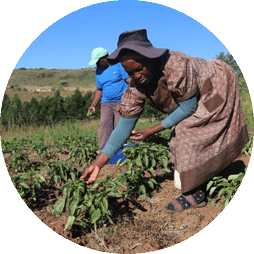Our Priorites
The Annual Food Security Future Summit
The Annual Food Security Future Summit is a flagship program organized by CAFS. It brings together stakeholders from various sectors including government, NGOs, farmers, researchers, and private sector actors to discuss and address the challenges and opportunities in achieving food security. The summit serves as a platform for knowledge sharing, networking, and collaborative action towards sustainable and resilient food systems.
Objectives:
1. To raise awareness about the challenges facing the global food system and the impact of climate change on food security.
2. To bring together stakeholders from different sectors and backgrounds, including government agencies, NGOs, the private sector, and communities, to discuss food security and the impact of climate change.
3. To develop and promote sustainable and equitable solutions that ensure everyone has access to safe and nutritious food, regardless of where they live or their socio-economic status.
4. To create a network of stakeholders that can work together to promote food security and address the challenges facing the global food system.
Key Themes:
1. Climate change and its impact on food security.
2. Sustainable and equitable food systems, including the use of technology, innovation, and best practices.
3. Engaging communities and building local capacity to promote food security.
4. The role of government and the private sector in supporting sustainable and equitable food systems.
TRAINING AND AWARENESS ON CSA, CLIMATE ADAPTATION, AND WEATHER INFORMATION
This program aims to raise awareness and build the capacity of farmers, policymakers, and other stakeholders on climate-smart agriculture, climate adaptation, and weather information. The workshops provide a platform for advocacy, knowledge sharing, and discussions on the importance of climate-resilient agricultural practices, adaptation strategies, and the utilization of weather information for decision-making in farming. We organize pre-season training program focuses on providing training and capacity building to small-scale farmers ahead of each planting season. The program equips farmers with knowledge and skills on best agricultural practices, including crop selection, land preparation, seed treatment, pest and disease management, and post-harvest handling. The training aims to enhance farmers’ productivity, income, and resilience to climate change.
AGRIC BUDGET AND POLICY FRAMEWORK ADVOCACY / DIALOGUES
The Agric Budget and Policy Framework Dialogues program aims to foster dialogue and engagement between stakeholders, policymakers, and government officials on agricultural budgeting and policy frameworks. The program seeks to advocate for increased budgetary allocations to the agricultural sector, improved policy frameworks, and effective implementation of agricultural policies and programs. It aims to ensure that agriculture receives adequate attention and resources for sustainable development.
HOMESTEAD/SCHOOL GARDEN PROJECT FOR IMPROVED NUTRITION:
The Homestead/School Garden Project focuses on establishing and supporting gardens in schools and homes to promote improved nutrition and educate students and community dwellers about sustainable agriculture. The program involves training teachers and students on gardening techniques, nutrition education, and the importance of consuming diverse and nutritious foods. The school gardens serve as practical learning spaces and provide fresh produce for school meals, contributing to improved nutrition and food security among students.
Change the world with us
Lorem ipsum dolor sit amet, consectetur notted adipisicing elit sed do eiusmod tempor incididunt ut labore et simply free text dolore magna aliqua lonm andhn.











